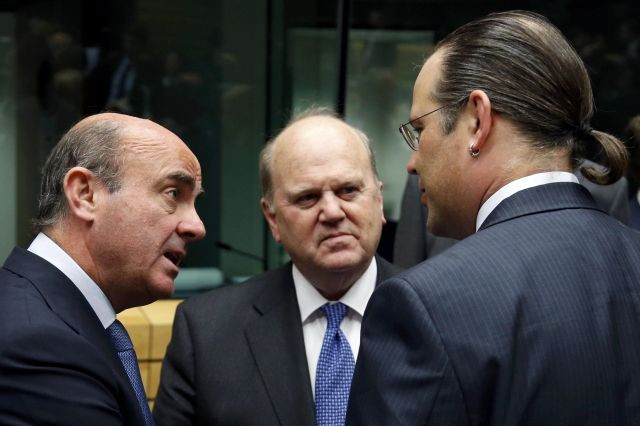EU Finance Ministers Agree On Draft Deal To Help Ailing Banks, Say Burden First Falls On Creditors, Shareholders And Large Depositors

Finance ministers from the European Union reached a draft agreement early Thursday, in Brussels, on new rules to tackle troubled banks, in an effort to end the practice of funding bailouts with taxpayers’ money.
Under the proposed plan, which came about after more than a year of negotiations, the burden of rescuing an ailing bank will first fall on its creditors and shareholders, followed by its customers who have more than 100,000 euros ($130,270) in deposits. Depositors with less than 100,000 euros in their accounts would always be safe, ministers said, according to news reports.
Existing rules require only shareholders, bondholders and lenders, who have accepted the risk by signing contracts, to take the hit. As an additional measure of protection for taxpayers’ money, governments will be required to set up a resolution fund using levies collected from banks to be used at the time of a crisis, the Wall Street Journal reported.
EU nations were unable to reach a consensus on the rules until now, as some governments feared that forcing losses on investors and creditors could raise banks’ funding costs, instill fear among investors, and further destabilize their economies, while they struggle to recover from the global financial crisis.
Several EU nations, particularly Spain, Cyprus and Ireland, have spent tens of billions of euros to rescue ailing banks over the past few years.
Michael Noonan, Ireland's finance minister who chaired the talks, said the EU nations managed to agree on rules that would reduce the taxpayer's burden, while preserving enough flexibility to protect a country's economy.
“I welcome the fact that taxpayers are now going to be protected by a bail-in mechanism rather than a bailout mechanism,” he told reporters at the end of the negotiations, the Journal reported.
Dutch finance minister Jeroen Dijsselbloem said the deal was a “big change” in the way banks were being dealt with.
“If a bank gets in trouble we will now, throughout Europe, have one set of rules on who pays the bill,” he said, according to a BBC report. “The financial sector itself will now to a very, very large extent become responsible for dealing with its own problems.”
Last Friday, EU finance ministers agreed on guidelines for the euro zone’s emergency bailout fund to pump a total of 60 billion euros directly into ailing banks, but only after a bank’s shareholders and large depositors had contributed to its rescue.
Dijsselbloem said bail-ins would “help preserve the stability of the euro area and remove the risk of contagion of the financial sector to the sovereign, thus weakening the vicious circle between banks and sovereigns.”
© Copyright IBTimes 2024. All rights reserved.






















